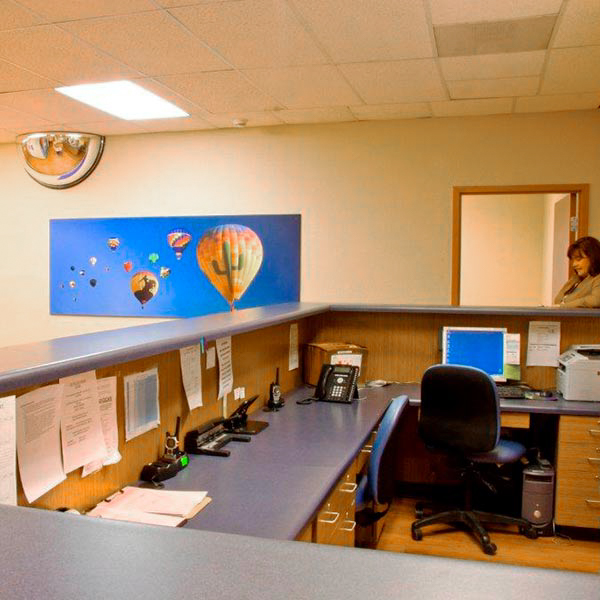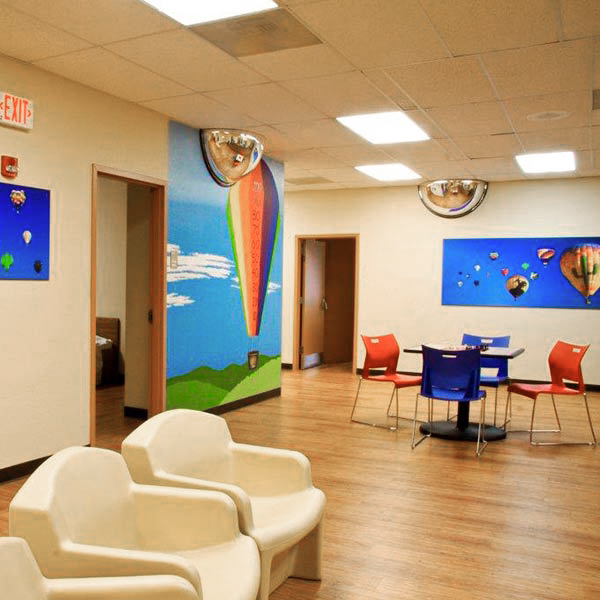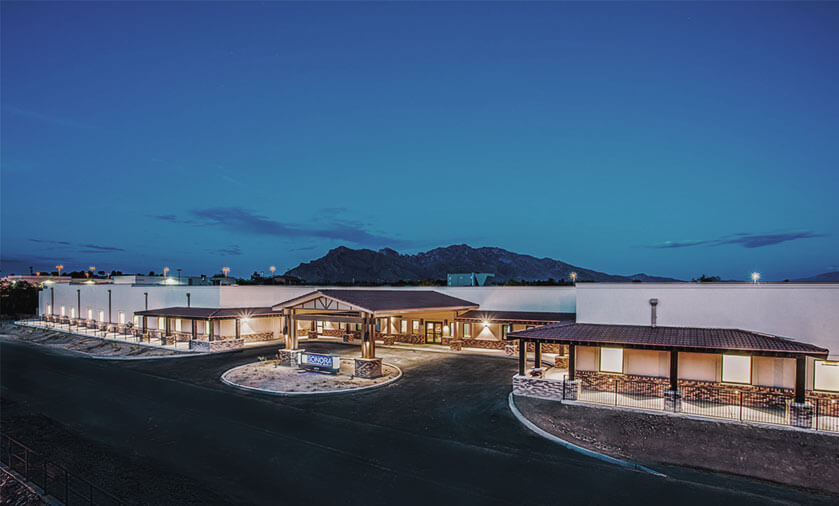Sonora Behavioral Health Hospital is Tucson’s leading provider of inpatient treatment programming for adolescents ages 12-17 suffering primarily from mental health concerns or those requiring medically-assisted detoxification services for chemical dependence.
Length of Stay
Length of Stay for our Mental Health Inpatient Program
Sonora Behavioral Health Hospital is the leading provider in Tucson of inpatient programs for adolescents and teens struggling with mental health, chemical dependence or dual diagnosis. Our youth unit services teens, ages 12-17, with specialized programing to meet the specific needs of adolescents. Although all cases differ, the typical length of stay is 5-7 days to achieve stabilization and enable transition to a community outpatient setting.
Qualifying Criteria
Qualifying Criteria for Inpatient Services
In many instances, people do not possess the judgment to hospitalize themselves voluntarily and need someone to step in to get them the help they need. By calling our 24 hour patient referral line you will be able to talk with an intake specialist to determine if Sonora is the best program for you or your loved one. Inpatient hospitalization may be needed if one or more of the following criteria has been met:
- Suicidal or homicidal thoughts
- Lack of self-care or the attending to basic needs like bathing or eating
- Disorganized speech or behaviors
- Psychosis
- Aggressive behavior
- Needs medically managed detoxification
Program Goals
Learn More About Our Program Goals
- To provide comprehensive psychiatric and medical assessments, diagnostic and treatment services.
- Stabilize the patient and treat acute mental illness in a sensitive and caring manner in a safe location.
- Assist patients in regaining and maintaining their highest level of functioning.
- Aid patients and their families in identifying and obtaining necessary social and medical resources upon discharge.
Treatment Components
Treatment Components in Our Inpatient Program for Adolescents
In our adolescent & teen psychiatric inpatient program, we use a multidisciplinary approach with each patient and our clinical team is composed of psychiatrists, psychiatric nurses, internists, master’s level social workers. Our entire treatment team is experienced in treating individuals with emotional health and substance abuse issues. All treatment care plans are individualized and include the following components:
- Psychiatric Care: All patients receive and initial psychiatric evaluation, diagnostic, testing and treatment recommendations shortly after admission in to our hospital. Additionally, they have regular contact with their psychiatrist throughout their hospital stay to monitor symptoms, review medication effectiveness and progress.
- Medical Care: A history and physical will be completed on each patient shortly after admission by an internist or nurse practitioner. Diagnostic tests may be ordered to rule out certain medical conditions. Patients will receive follow up appointments as needed.
- Social Worker Led Groups: Based on the patient’s individualized treatment plan designed by the multidisciplinary team, patients will attend two or three different group therapy sessions daily. Drawing from cognitive behavioral therapy and dialectical behavior therapy, master’s level social workers promote coping skills, emotion regulation, distress tolerance and interpersonal effectiveness. Depending on need, patients may also be assigned chemical dependence group, skills group, resource group, relapse group, relaxation group and expressive art therapies.
- Behavioral Health Technician Groups: Patients attend several additional groups a day with their BHT. Groups included goal setting and social skills. BHTs also facilitate two peer led groups based on “the 12 step program”, emotions anonymous and a chemical dependency group
- Education Groups: Patients who attend to their physical health have better outcomes with their mental health. Patients attend two different group meetings with registered nurses and dieticians. They focus on medication management, self-care, nutrition, relaxation and healthy living.
- Family meetings: Family members are invited to be part of treatment process during the program and receive education about their loved one’s condition. In addition, family members are encouraged to connect with case managers throughout their loved one’s stay.
Discharge Process
Discharge Process & Continuing Care Planning
The discharge planning process begins as soon as a patient is admitted to our inpatient program. A social worker will evaluate each patient for available resources including placement, transportation, and aftercare treatment. Prior to discharging from the inpatient program, a social worker will coordinate the next level of appropriate care with the patient, family, mental health agency and insurance company.
Visitation
Visitation for Family
Please call reception for the most up to date visitation information.
Referrals
Working with Sonora as a Professional Referral
Crises are unpredictable. That is why Sonora’s Patient Services Helpline, at (888) 374-4167, is staffed 24 hours to answer questions from referring clinicians and potential patients. If you or a loved are in immediate danger, please dial 9-1-1.














